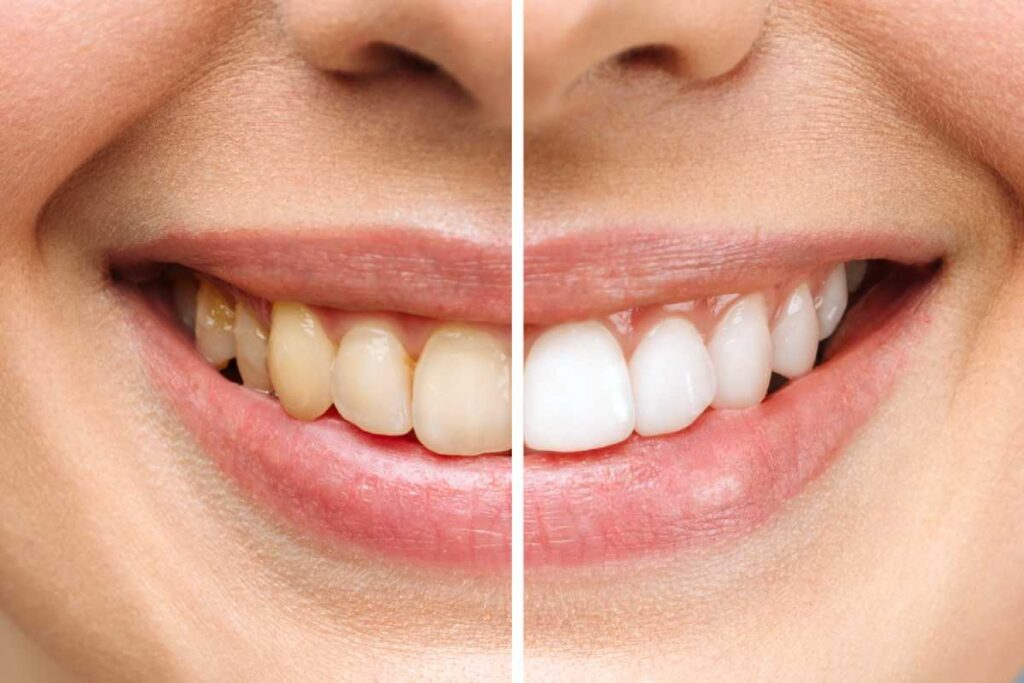Understanding the Purpose of Teeth Whitening
Teeth Whitening is a popular cosmetic dental procedure aimed at removing stains and enhancing the natural brightness of your teeth. Over time, teeth can become discolored due to aging, dietary habits, and lifestyle factors. Teeth Whitening treatments work by breaking down stains into smaller pieces, making the teeth appear brighter and whiter.
This procedure is widely sought after by individuals who wish to improve their smile and boost their confidence. Whether performed at home or in a professional dental clinic, whitening offers a non-invasive solution to discoloration. Understanding its purpose helps individuals make informed decisions about when and how to incorporate whitening into their oral care routine for both aesthetic and hygiene-related benefits.
Types of Teeth Whitening Methods Available
There are several reliable Teeth Whitening methods available, each with its own advantages. In-office professional whitening treatments offer fast and dramatic results, often using high-concentration bleaching agents and specialized light systems. At-home whitening kits provided by dentists are also effective, offering customized trays and stronger formulations than over-the-counter options.
Additionally, over-the-counter Teeth Whitening products like strips, gels, and toothpaste provide a more accessible solution for gradual improvement. Natural remedies such as baking soda and hydrogen peroxide are sometimes used, although these should be approached with guidance. By understanding the differences between these methods, patients can choose a safe and effective whitening plan that suits their lifestyle and expectations.
Safety Considerations in Teeth Whitening
Modern Teeth Whitening procedures are generally considered safe when performed correctly. Whether conducted by a dentist or through approved at-home kits, whitening products undergo strict testing to ensure they are safe for enamel and gums. The active ingredients, primarily hydrogen peroxide or carbamide peroxide, are formulated in concentrations that balance efficacy and safety.
When patients follow instructions and avoid overuse, Teeth Whitening presents minimal risk. It’s essential to consult a dental professional before beginning treatment, especially for those with dental restorations or sensitive teeth. By selecting clinically approved products and methods, patients can achieve a whiter smile without compromising their oral health.
Effectiveness of Teeth Whitening Treatments
The effectiveness of Teeth Whitening depends on the method used, the extent of discoloration, and the individual’s enamel condition. Professional treatments deliver the most noticeable results, often whitening teeth by several shades in a single visit. Dentist-supervised at-home kits also yield consistent improvements over time.
Even over-the-counter Teeth Whitening products can effectively reduce surface stains when used regularly. The key to long-lasting results lies in maintaining good oral hygiene and avoiding stain-causing substances like coffee, wine, and tobacco. With proper care and the right approach, patients can enjoy a visibly brighter smile and maintain it for years to come.
Addressing Sensitivity and Enamel Health
Some individuals may experience temporary sensitivity during or after Teeth Whitening treatments, especially with higher-strength formulas. This occurs when the whitening agents penetrate the enamel to reach the dentin layer. However, the sensitivity is usually mild and resolves within a few days. Dentists may recommend desensitizing toothpaste or adjusting the whitening schedule to reduce discomfort.
Importantly, Teeth Whitening does not damage healthy enamel when used correctly. Products are designed to be gentle yet effective, and dental supervision ensures procedures are tailored to each patient’s needs. By taking preventive steps and following professional advice, patients can achieve their whitening goals comfortably and safely.
Long-Term Maintenance and Whitening Longevity
Maintaining the results of Teeth Whitening involves a combination of healthy habits and occasional touch-ups. Patients should brush and floss regularly, attend routine dental cleanings, and limit consumption of staining foods and beverages. Using a straw when drinking dark liquids and rinsing the mouth afterward can also help preserve the brightness of your smile.
Touch-up Teeth Whitening sessions, whether at home or in a clinic, may be scheduled every 6 to 12 months depending on individual needs. Whitening toothpaste and mouthwash can support maintenance between treatments. With proper care and lifestyle adjustments, patients can enjoy a radiant smile for extended periods, reinforcing the long-term value of their investment in whitening.
Who Should Consider Teeth Whitening?
Teeth Whitening is suitable for most individuals with healthy teeth and gums who are looking to enhance the appearance of their smile. Ideal candidates include those with discoloration caused by foods, beverages, smoking, or age. Whitening is not typically recommended for patients with severe enamel erosion, cavities, or untreated gum disease until these conditions are resolved.
Those with dental restorations such as crowns or veneers should consult their dentist, as Teeth Whitening does not affect these materials. A comprehensive dental evaluation helps determine the most appropriate method and ensures a safe experience. By understanding their specific oral health status, patients can proceed with confidence and enjoy the aesthetic benefits of whitening.
Conclusion
Teeth Whitening is a safe and highly effective solution for enhancing the natural beauty of your smile. With multiple options available—from in-office treatments to dentist-supervised at-home kits and over-the-counter products—patients have the flexibility to choose a method that fits their needs. When used responsibly, whitening procedures provide impressive results without harming enamel or causing long-term sensitivity.
Consulting with a dental professional ensures that each step of the process is tailored to individual requirements. By following best practices and maintaining healthy oral habits, the benefits of Teeth Whitening can be enjoyed for years to come. A brighter smile not only improves appearance but also fosters confidence, positivity, and well-being—making whitening a valuable part of any personal care routine.
Frequently Asked Questions
Is teeth whitening safe for everyone?
Yes, most people can safely undergo whitening with proper guidance.
How long do whitening results last?
Results can last several months to a few years with good oral care.
Does whitening damage enamel?
No, professionally approved products do not harm healthy enamel.
Can I whiten my teeth at home?
Yes, with dentist-prescribed kits or trusted over-the-counter products.
Is in-office whitening more effective?
Yes, it offers faster and more noticeable results in a single session.
What causes tooth discoloration?
Stains from food, drinks, smoking, and aging are common causes.
Will whitening work on crowns or veneers?
No, whitening only affects natural teeth, not restorations.
How often can I whiten my teeth?
Usually every 6–12 months depending on the method used.
What should I avoid after whitening?
Avoid dark-colored foods and drinks for at least 48 hours post-treatment.
Does whitening cause sensitivity?
It can cause temporary sensitivity, which usually resolves quickly.












